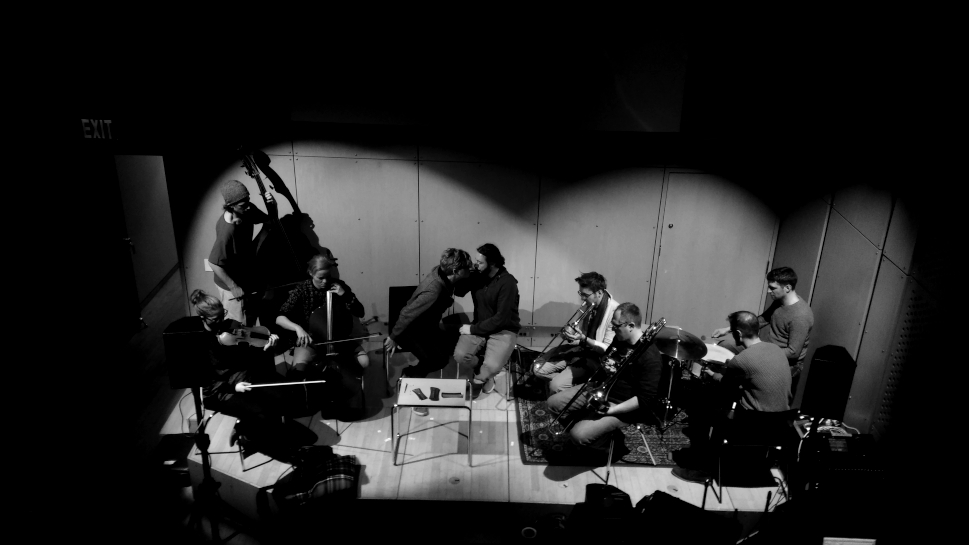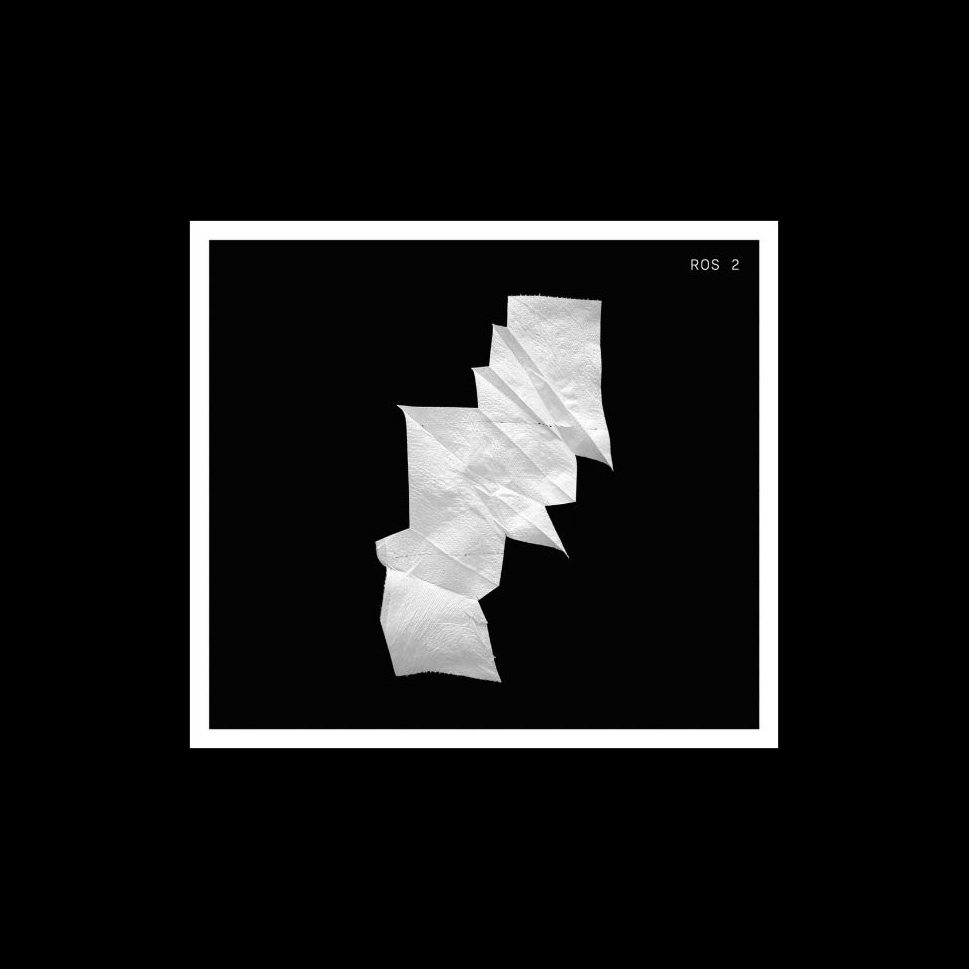"HOHNOR"
by Christian F. Schiller, commissioned and played by Viennese Ensemble Studio Dan, world premiered on December 1st, 2017 at Austrian Cultural Forum in New York City, recorded on January 31st, 2019 by Nik Hummer at Studio Minusgroundzero and released as ROS 2 by the ensembles own label records & other stuff 2021.

"It was impossible not to imagine Ad Reinhardt's abstract, mystical monochromatic paintings during the second half of the Austrian Cultural Center performance last night. Composer Christian F. Schiller had devised a colorful ensemble to perform his HOHNOR, from the Studio Dan Ensemble. One violin, one cello, one double bass (the amazing Manuel Mayr), one strange-looking trumpet, drums, and trombone from Daniel Riegler, who had composed the work which opened the concert. Plus, in the center, two harmonicas. As a one-time harmonicist, I wondered what they would do. But the answer – as in a black-upon-black canvas – was that nobody did much of anything. The motionless was illusory (see below) but seemed at the time perfectly static. Perhaps this was inspired by the title, “Hohn” is the German for Scorn, so the neologism means “Honor/Scorn”. “Aha”, thought I, as the first dark microtonal soft buzzing came from the pair of harmonica players in the lowest range, triple-tonguing their notes to increase the buzz. “Now we'll crescendo into so-called ‘honor‘ and then deconstruct the word with the scorn it deserves.” Except that nothing really advanced after those first low trilling notes by all the instruments. Low, bleak, black, and in Ad Reinhardt's words, “the art of stillness”. Mr. Riegler raised his trombone a bit, but this was out of place in such a near-religious stasis. In fact, just believing that it would lift itself from the abyss gave my own mind a psychological jolt. Like the dichotomy of the title, my aesthetic mind (not my thoughts, which were glued to the music) was advancing ahead, before being pulled back to the reality of the singleness of the music. My mind had enjoyed an aural illusion of kinetic movement. Mr. Schiller's mind had the reality of utter stillness. Though that was not quite true. Like the palimpsest of the paintings, the cover sounds of the ensemble were altering by microtonal movements. Not resembling the motions of, say Steve Reich's music, but within their own cells, changing around with quark-like alterations. Like Reinhardt's paintings, there were brief diversions, little ripples. And at the end of the first movement, we had real action. One of the two harmonica players slowly, elegantly disassembled his instrument, reverently placing each piece on a metal table. He never blew another note, looking straight ahead... except in one part – the climax? – when he came close to his partner, and like a lover, put his lips on the sounding system of the instrument, exhaled, inhaled and then stayed by himself. The last section would be described as infinite ppppp, each instrument whispering, then silence, then applause. HOHNOR thus came to an inconclusive, but strangely fascinating end. It was blessedly short, always intriguing, even captivating. Mr. Schiller, unlike so many composers, understood brevity, never let this go on too far. And for those illusions and contentment, we could all be thankful." (Harry Rolnick´s review on HOHNOR´s World Premiere at Austrian Cultural Forum, New York City, 1. December 2017, www.concertonet.com)
